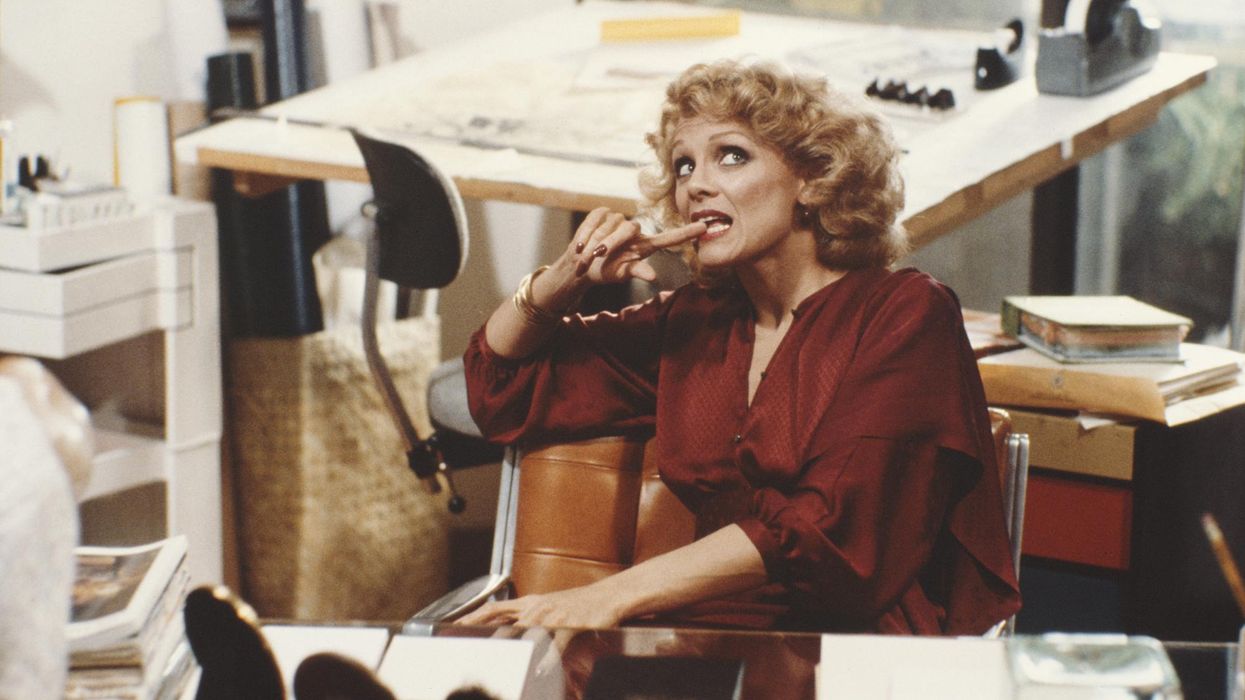Experiencing Reopening Anxiety? Here’s How to Cope
Go slow, and start with the things you miss the most.

In case you hadn't noticed, parts of the world are opening back up. Late last month, the CDC announced that fully vaccinated people no longer needed to wear masks outdoors, except in some crowded settings, and in Brooklyn, it has been a true joy to see people's faces as we pass on the sidewalk.
But it's all happening fast. We had to acclimate at a horrifying pace at the pandemic's start, and unlearning all the habits we've clung to for our health and sanity over the past many months won't fade overnight. Plus, anxiety is real, and the mind takes time to catch up with the body (or the CDC).
So we spoke with one of our favorite experts, Esther Boykin, LMFT, CEO of Group Therapy Associates and Therapy Is Not a Dirty Word, to get some insight about what comes next.
Is it normal to feel anxious about "re-entry"?
"It's absolutely normal to feel anxious about the prospect of re-entering the world post-quarantine. Although we talk a lot about 'getting back to normal,' the truth is that what feels 'normal' is typically whatever we routinely do.
"For most of us, what we routinely do now is wear masks, limit socializing, maintain six feet, and take precautions against COVID-19. The idea of changing those things will cause varying levels of anxiety for each of us. We're doing something new yet again, and that causes most of us to feel a little trepidation."
What are some practical things we can do as we ease back into "normal" life?
"Honor your own pacing: Don't feel pressured to do things just because everyone else says it's safe. Doing things too fast won't make you feel less anxious and often increases the sense of lack of control that is likely underlying your anxieties.
"Start with the things you miss the most: When we're able to ease into a new way of doing things that creates big emotional rewards, it becomes easier. Go out with friends or family you haven't seen in a while, or visit your favorite restaurant, museum, or other public place you haven't been to in a while.
"Talk to experts: Your anxieties are not silly or made up. We continue to deal with the physical and emotional impact of a pandemic, and so it makes sense to talk with your doctors, therapists, and other wellness experts about any concerns you have. Having their insight and support can help.
"Practice a lot of compassion: It's easy, as you see more people doing things that you may not feel comfortable doing, to be harsh or judgmental about them or your own feelings. But that won't help anyone. It is in our compassion for ourselves and others that we find contentment, hopefulness, and the capacity to do more."
For some, anxiety is higher than ever, and doing simple things like taking an elevator or riding the subway that used to be part of daily life can seem daunting. Any suggestions to cope?
"Feeling claustrophobic—and also social anxiety—is very common. Not only have we lost practice with these experiences, but we also have valid fears attached to them. After a year of being told that being in close quarters with other people can put you at risk of a potentially life-threatening illness, it makes perfect sense that those experiences now feel unsafe, even if intellectually you have come to terms with the changing circumstances.
"Don't be hard on yourself about this. Gradual exposure, as we do with exposure therapy, is a great course of action. Try one new thing a week until it feels comfortable, and then do more. If you are finding that elevators, close quarters, or simply being in public with others is causing debilitating anxiety or even panic attacks, please see a therapist. This is very treatable, and the sooner you reach out, the easier it is to resolve.
"You can also try things like progressive relaxation, meditation, and affirmations and mantras to help coach yourself through those situations."
Any tips for fully vaccinated people to feel less anxiety about doing once-normal things, like hugging a friend?
"Our bodies hold and respond to knowledge just as much, sometimes more, than our brains. Just because you know in your head something is safe doesn't mean your body won't respond with panic. Be patient as it catches up.
"I really encourage people to name these fears. Say them out loud, and share with friends and family who can empathize. It's perfectly OK to say to a friend, 'I miss hugging you and know that now that I'm vaccinated it should be safe, and yet I'm still anxious.'
"You'll be surprised how many people are experiencing similar feelings. Knowing that it's not just you can help avoid the self-criticism spiral and actually ease your discomfort."
What's the most important thing you'd suggest people keep in mind as they begin the process of re-entry?
"There's no right way to do this. Going into quarantine was hard for most of us because it was fast and uncertain. The gift of re-emerging is that most of us have the luxury of time.
"You don't have to go back to parties immediately. You don't have to take the elevator or subway immediately just because it's 'safer now.' Embrace the pace that feels good to you."
Photo: Getty
Want more stories like this?
It Might Be Time for a Spiritual Cleansing
How to Build Emotional Resilience Right Now
Understanding the Wabi-Sabi Art of Imperfection




